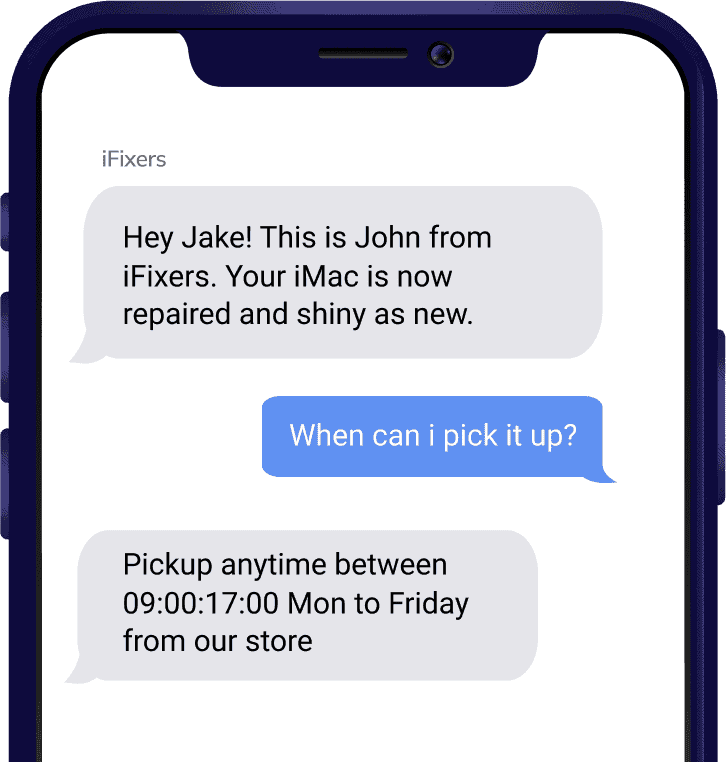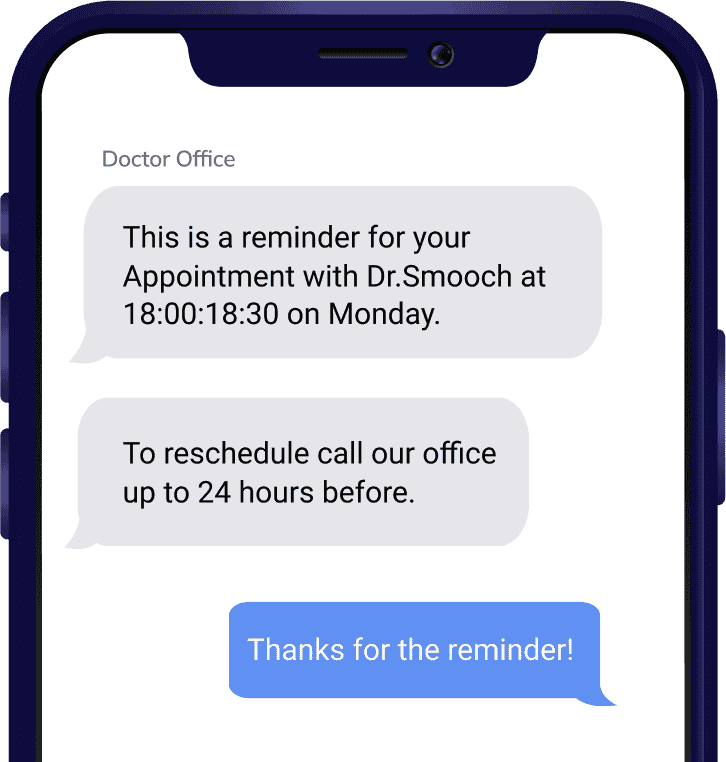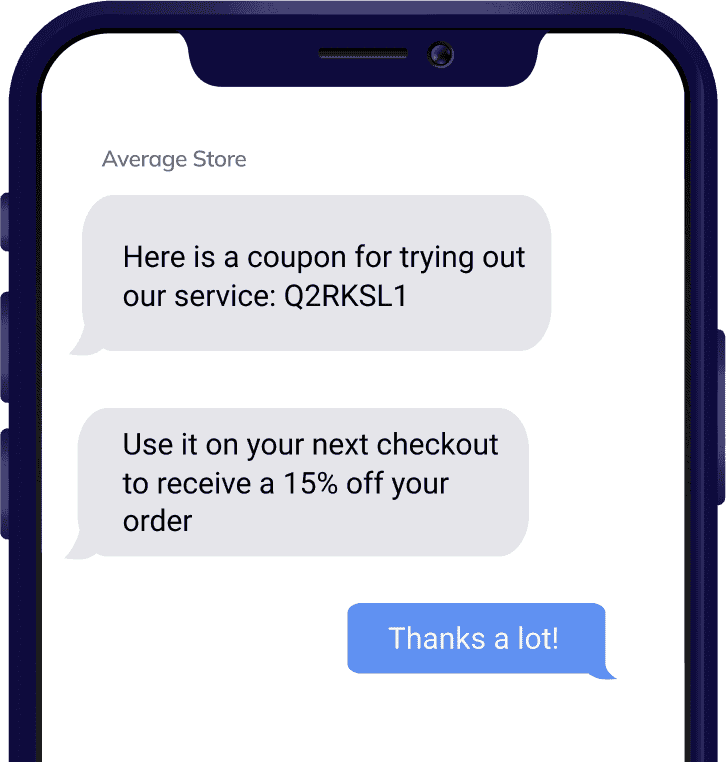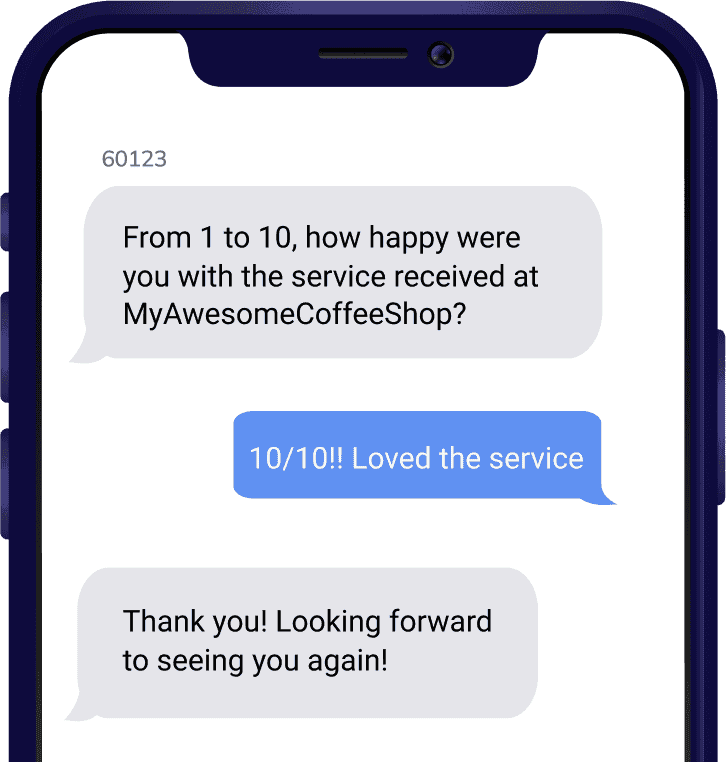Easily Send SMS Messages to Singapore with SMS API Services Experience seamless SMS communication with your customers in Singapore and around the world using our SMS API. Our platform offers an effortless setup process and low-cost option for reaching out to your target audience in Singapore via SMS.
*No credit card required







Our text message API is designed to be adaptable, allowing you to integrate SMS capabilities into your preferred programming language and framework.

Experience the reliability of our SMS delivery infrastructure, ensuring your messages reach their destination safely and in a timely manner without ever have to worry.

Whether you need to send a few messages or millions, our message API can handle your volume needs, providing a scalable solution to meet your requirements.

With our SMS API, you can reach users globally in just minutes. Sign up for free, get your API key, and start leveraging the power of SMS communication.
The demand for SMS API in Singapore is on the rise. In 2018, there were over 8.4 million mobile subscribers in the country, which is more than the total population of Singapore. This resulted in a mobile penetration rate of 141.1%. With the constant growth of mobile subscriptions, the opportunity for A2P traffic is massive for businesses. By partnering with a professional service provider like SMS.to, your local or international business can leverage this trend and reach a wider audience through Bulk SMS. Don’t miss out on the chance to tap into this growing market.
With SMS.to, you can unlock the power to connect with customers using our reliable and scalable SMS API services in Singapore. Whether you’re building apps or integrating with CRMs and software, our robust connectivity allows you to send SMS messages to all Singapore networks. Streamline your communication strategy today with SMS.to’s user-friendly SMS API.
curl --location 'https://api.sms.to/sms/send' \
--header 'Authorization: Bearer <api_key>' \
--header 'Content-Type: application/json' \
--data '{
"message": "This is test and \n this is a new line",
"to": "+35799999999999",
"bypass_optout": true,
"sender_id": "SMSto",
"callback_url": "https://example.com/callback/handler"
}'
<?php
$curl = curl_init();
curl_setopt_array($curl, array(
CURLOPT_URL => 'https://api.sms.to/sms/send',
CURLOPT_RETURNTRANSFER => true,
CURLOPT_ENCODING => '',
CURLOPT_MAXREDIRS => 10,
CURLOPT_TIMEOUT => 0,
CURLOPT_FOLLOWLOCATION => true,
CURLOPT_HTTP_VERSION => CURL_HTTP_VERSION_1_1,
CURLOPT_CUSTOMREQUEST => 'POST',
CURLOPT_POSTFIELDS =>'{
"message": "This is test and \\n this is a new line",
"to": "+35799999999999",
"bypass_optout": true,
"sender_id": "SMSto",
"callback_url": "https://example.com/callback/handler"
}',
CURLOPT_HTTPHEADER => array(
'Authorization: Bearer <api_key>',
'Content-Type: application/json'
),
));
$response = curl_exec($curl);
curl_close($curl);
echo $response;
var https = require('follow-redirects').https;
var fs = require('fs');
var options = {
'method': 'POST',
'hostname': 'api.sms.to',
'path': '/sms/send',
'headers': {
'Authorization': 'Bearer <api_key>',
'Content-Type': 'application/json'
},
'maxRedirects': 20
};
var req = https.request(options, function (res) {
var chunks = [];
res.on("data", function (chunk) {
chunks.push(chunk);
});
res.on("end", function (chunk) {
var body = Buffer.concat(chunks);
console.log(body.toString());
});
res.on("error", function (error) {
console.error(error);
});
});
var postData = JSON.stringify({
"message": "This is test and \n this is a new line",
"to": "+35799999999999",
"bypass_optout": true,
"sender_id": "SMSto",
"callback_url": "https://example.com/callback/handler"
});
req.write(postData);
req.end();
require "uri"
require "json"
require "net/http"
url = URI("https://api.sms.to/sms/send")
https = Net::HTTP.new(url.host, url.port)
https.use_ssl = true
request = Net::HTTP::Post.new(url)
request["Authorization"] = "Bearer <api_key>"
request["Content-Type"] = "application/json"
request.body = JSON.dump({
"message": "This is test and \n this is a new line",
"to": "+35799999999999",
"bypass_optout": true,
"sender_id": "SMSto",
"callback_url": "https://example.com/callback/handler"
})
response = https.request(request)
puts response.read_body
import http.client
import json
conn = http.client.HTTPSConnection("api.sms.to")
payload = json.dumps({
"message": "This is test and \n this is a new line",
"to": "+35799999999999",
"bypass_optout": True,
"sender_id": "SMSto",
"callback_url": "https://example.com/callback/handler"
})
headers = {
'Authorization': 'Bearer <api_key>',
'Content-Type': 'application/json'
}
conn.request("POST", "/sms/send", payload, headers)
res = conn.getresponse()
data = res.read()
print(data.decode("utf-8"))
OkHttpClient client = new OkHttpClient().newBuilder()
.build();
MediaType mediaType = MediaType.parse("application/json");
RequestBody body = RequestBody.create(mediaType, "{\r\n \"message\": \"This is test and \\n this is a new line\",\r\n \"to\": \"+35799999999999\",\r\n \"bypass_optout\": true,\r\n \"sender_id\": \"SMSto\",\r\n \"callback_url\": \"https://example.com/callback/handler\"\r\n}");
Request request = new Request.Builder()
.url("https://api.sms.to/sms/send")
.method("POST", body)
.addHeader("Authorization", "Bearer <api_key>")
.addHeader("Content-Type", "application/json")
.build();
Response response = client.newCall(request).execute();
package main
import (
"fmt"
"strings"
"net/http"
"io/ioutil"
)
func main() {
url := "https://api.sms.to/sms/send"
method := "POST"
payload := strings.NewReader(`{`+"
"+`
"message": "This is test and \n this is a new line",`+"
"+`
"to": "+35799999999999",`+"
"+`
"bypass_optout": true,`+"
"+`
"sender_id": "SMSto",`+"
"+`
"callback_url": "https://example.com/callback/handler"`+"
"+`
}`)
client := &http.Client {
}
req, err := http.NewRequest(method, url, payload)
if err != nil {
fmt.Println(err)
return
}
req.Header.Add("Authorization", "Bearer <api_key>")
req.Header.Add("Content-Type", "application/json")
res, err := client.Do(req)
if err != nil {
fmt.Println(err)
return
}
defer res.Body.Close()
body, err := ioutil.ReadAll(res.Body)
if err != nil {
fmt.Println(err)
return
}
fmt.Println(string(body))
}
SMS integrations for your preferred platform


Get free Call & SMS credits on Sign-Up
